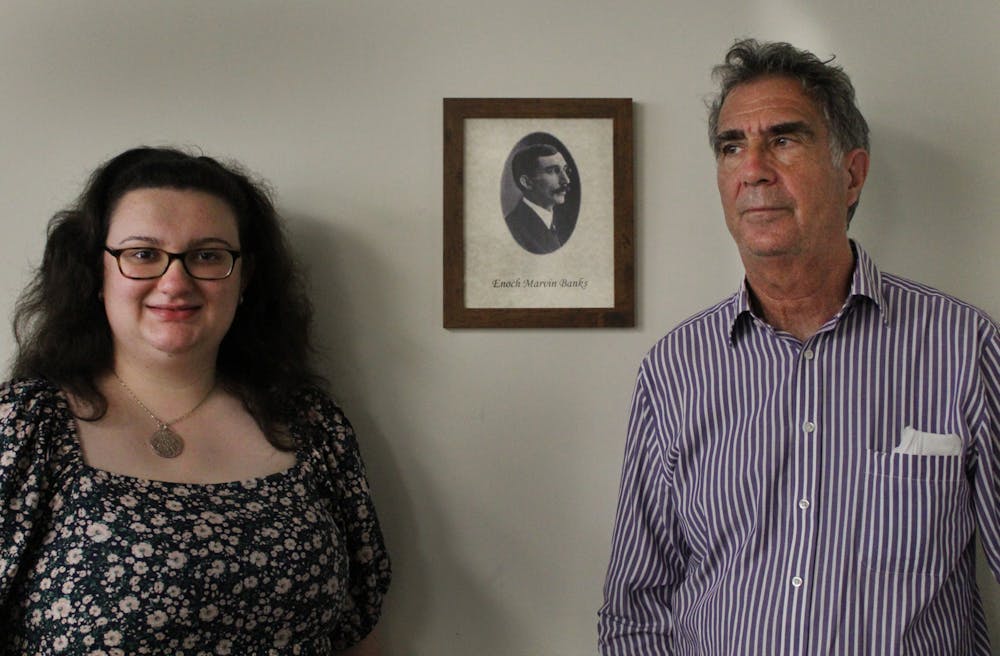The Plaza of the Americas is surrounded by some of UF campus' oldest buildings, making the area rich with history. Keene-Flint Hall, nestled in the outskirts of the square, was built in 1910, but history is still in the making for this old brick building.
A conference room on the ground floor of the hall was named Thursday afternoon after one of UF’s first history and economics professors Enoch Marvin Banks.
In 1911, Banks published an article in The Independent calling on the South to admit its wrongdoings for trying to secede from the Union during the Civil War. It angered many Confederate societies, and they pushed to have Banks fired.
Ultimately, Banks complied and gave in his letter of resignation. His name, however, was not forgotten in the history department.
With a nameless conference room and a burning sense of justice, a three-person committee of the UF history honor society Phi Alpha Theta members initiated the naming of the room with guidance from Steven Noll, a history professor and the society’s faculty advisor.
In his Florida history class, Noll assigns “Free Speech at the University of Florida: The Enoch Marvin Banks Case,” a reading on Banks. After reading the article, one of Noll’s students, Kayla Cook, a UF alumna, wanted to honor the former professor.
Cook, joined by Morgan Peltier and Briana Wiggins, advocated to make amends for the former professor in this century.
Within the last academic year, UF has been under fire for issues such as denying professors the right to testify in court cases and not allowing courses to include the words “critical race theory” in the title.
Recent academic freedom struggles at UF have coincidentally emulated the censorship Banks experienced since students chose him to be the room’s namesake, Noll said.
“I think his story has unbelievable relevance today, even more than it had when these guys started the story,” he said. “This is one reason why I think it’s important to have his name out there and have people talk about him.”
Banks was forced out because he shared his viewpoint, and this form of censorship did not end with him, Wiggins, a 22-year-old history and international studies senior, said. He was the first in a pattern of people to be forced out of the community for using his right of free speech.
Father John Francis Conoley was another who was condemned by the Gainesville community for his beliefs, Wiggins said.
Conoley was the founder of the Catholic campus ministry at UF who was antagonized by a local chapter of the Ku Klux Klan for his religious teachings, she said. Klan members successfully advocated to ban him from campus and even physically attacked him.
Academia is about the freedom of ideas, discussion and academic thought, she said.
“I think [Banks’] story is really a warning of what happens when you let too much local politics take over academia,” she said.
Getting the history department to approve the naming of the room has taken two years, Noll said. COVID-19 slowed the three students’ traction, but their efforts finally came to fruition Thursday.
An intimate gathering of seven people met outside the conference room to watch Noll hang the plaques identifying the room.
Contact Elena Barrera at ebarrera@alligator.org. Follow her on Twitter @elenabarreraaa.

Elena is a second-year journalism major with a minor in health sciences. She is currently the University Administration reporter for The Alligator. When she is not writing, Elena loves to work out, go to the beach and spend time with her friends and family.






